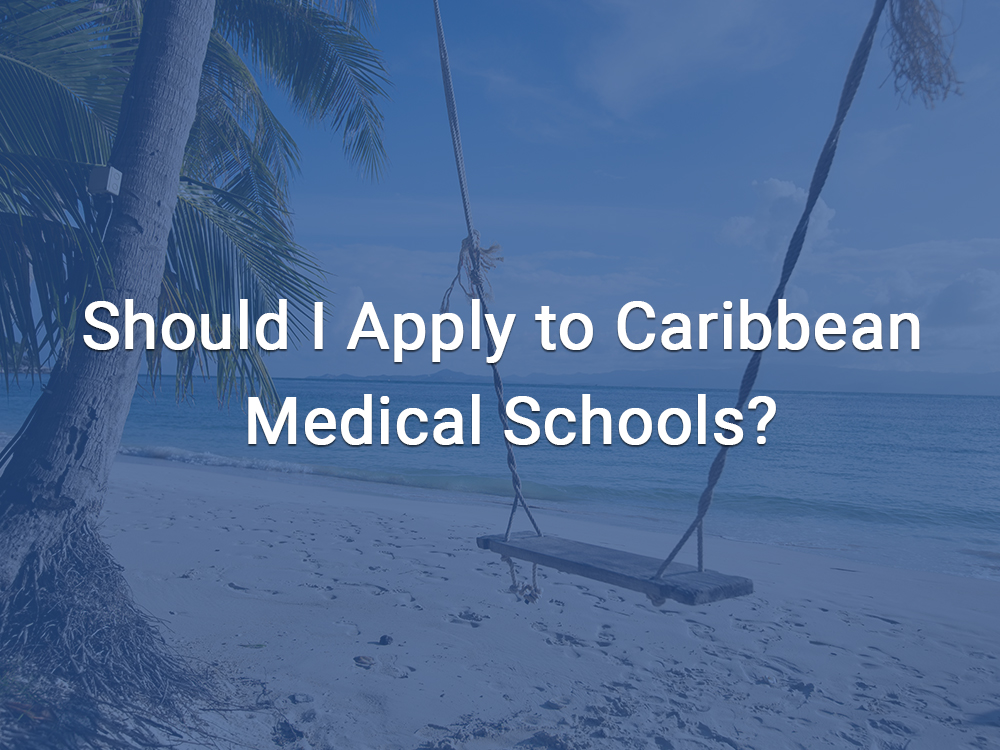It’s safe to assume there are three things you will hear once you decide to become a doctor: It’s hard, you need to study for the MCAT (and that’s not a cakewalk either) and don’t go to a Caribbean medical school. The first two seem like a no-brainer, but you’ll inevitably wonder, are Caribbean medical schools really that bad? For pre-med students in the United States, Caribbean med schools are often seen as an afterthought or a last resort. Before we answer this controversial question, we need to see how some students arrive at this crossroads.
Caribbean Medical School Overview
Getting Into Medical School Isn’t Easy
Med school admissions are notoriously competitive. According to the Association of American Medical Colleges (AAMC), about 40% of applicants in the 2018-2019 cycle matriculated in an MD program. However, even getting to the point of applying is a huge feat in-and-of-itself, with many of the early undergrad med schools requirements known to “weed out” students prematurely. Imagine feeling pressured to not just pass your courses, but maintain the highest GPA you can with the need to have a resume packed with med-related activities, including shadowing, volunteering, and clinical experience.
Then there’s the MCAT, the nearly eight-hour exam designed to test the concepts you will encounter in medical school. Students prep for weeks, even months, for the MCAT, and some find themselves having to retake it because their scores aren’t high enough to get accepted to their dream medical school. It’s no wonder many pre-med students change their path or drop out of the program entirely.
The rigors of medical school applications force some pre-med students to make hard decisions if their GPA and/or MCAT scores aren’t as competitive as their peers, which makes them look at Caribbean medical schools as their safety net.
Are Caribbean Medical Schools a Bad Choice?
For better or worse, Caribbean medical schools carry some huge misconceptions.
Myth 1: Caribbean Medical Schools Accept Everybody.
While it is true that Caribbean schools have a higher acceptance rate, saying they accept anybody is a stretch. Their admissions process is more holistic and doesn’t place such a large emphasis on GPA and MCAT scores. It’s why these schools are often seen as a second chance for some students.
Myth 2: Caribbean Medical Schools Aren’t as Good as American or Canadian Schools.
There are undoubtedly some Caribbean medical schools with lower-quality curricula. However, there are also some schools that can deliver a great medical school education. It’s this inconsistency that should make you very cautious. That said, some of the best Caribbean medical schools are St. George’s University, Ross University, American University of the Caribbean, American University of Antigua, and Saba University School of Medicine.
Myth 3: You Can’t Practice as an MD in the U.S. If You Graduate From a Caribbean Medical School.
Categorically not true. You can practice medicine in the U.S. if you’ve graduated from a Caribbean medical school. You will still have to take the USMLE and apply for a residency. However, it goes without saying that it will be more difficult than if you went to an American or Canadian medical school.
Cons of Caribbean Medical Schools
- Class sizes are larger – Since admissions requirements aren’t as strict, Caribbean med school class sizes are often larger than what you would expect. Overcrowding is not uncommon.
- You will have to work harder than your American or Canadian peers -Due to the negative connotations of the Caribbean schools (including an easier education and walk-in acceptances), you will have to work harder to prove yourself in every way. You will have to score higher on the USMLE, have a nearly impeccable transcript, and an even better resume to be placed into residencies, especially the competitive ones.
- Residency matching rates are lower – According to the National Resident Match Program, the match rate for U.S. medical schools is 94%. In contrast, the match rate for U.S. citizen international medical graduates is 59%. Some Caribbean schools even hide their match list—a big red flag!
- You need to obtain additional certificates – In order to obtain licensures in the U.S, Caribbean med school graduates must obtain their Educational Commission for Foreign Medical Graduates certification, on top of completing their USMLEs and other state-specific certifications.
- Medical School Accreditation – Medical schools in the U.S. and Canada are accredited by the Liaison Committee on Medical Education (LCME). D.O. schools are accredited by The AOA Commission on Osteopathic College Accreditation (COCA). Caribbean medical schools are not accredited by either the LCME or COCA, but rather the National Committee on Foreign Medical Education and Accreditation of the US Department of Education determines whether the process conducted by a Caribbean school’s accrediting organization is comparable.
High Risk, Low Reward?
If you take into account the downsides of Caribbean medical schools (including overcrowding, unpredictable education, and low match rates) plus the hundreds of thousands of dollars in medical school loans you can expect to take out, it’s not hard to see why going to school outside the U.S. is risky. Doctors are already finding it difficult to repay their loans; you don’t need to add any career uncertainty to that.
Should I Apply To a Caribbean Medical School?
If at this point you’re still wondering if you should apply to a Caribbean school, ask yourself why you want to. Is your GPA too low? Look into a post-bacc program. If your MCAT score isn’t as high as you need it to be, you can always retake the MCAT. If you do decide to retake, however, make sure you switch up your MCAT prep. If you did an MCAT course previously, this time, try private MCAT tutoring for personalized and customized MCAT preparation. Or if you don’t think you’ll find much success applying to MD schools, consider DO programs.
Final Thoughts
That said, regardless of why you are considering Caribbean medical schools, make sure you do your research. Not every school is the same caliber as the next. Ask the right questions and make sure you make an informed decision.
One crucial thing to remember, no matter where you apply, is the value of an MCAT score. Med school admissions are not solely dependent on your numbers, but a good MCAT score will give you more options than a not-so-good score.
Blueprint MCAT is a leader in representative MCAT prep.
Whether you need the flexibility of a Self-Paced Course, the instruction of a live 515+ Course, or the 1:1 attention of a private MCAT tutor, Blueprint MCAT has the MCAT prep option that works for your learning style! We constantly update our MCAT practice tests to reflect the latest AAMC interface and changes; see for yourself and get a free diagnostic and full-length by signing up for the free MCAT practice bundle.
What works for some may not work for all, so it’s important to find the right MCAT prep that works for you. Schedule a free consultation with our experienced MCAT Advisors to start you on the path to MCAT success.




